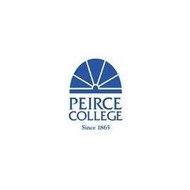
(View Complete Item Description)
Have you ever had trouble teaching the various topics of social psychology and fitting them together to form a coherent field? Dr. Stangor felt like he was presenting a laundry list of ideas, research studies, and phenomena, rather than an integrated set of principles and knowledge. He wondered how his students could be expected to remember and understand the many phenomena that social psychologists study? How could they tell what was most important? It was then that he realized a fresh approach to a Social Psychology textbook was needed to structure and integrate student learning; thus, Principles of Social Psychology was born. This textbook is based on a critical thinking approach, and its aim is to get students thinking actively and conceptually Đ with a greater focus on the forest than the trees. Yes, there are right and wrong answers, but the answers are not the only thing. What is perhaps even more important is how students get to the answers Đ the thinking process itself. To help students better grasp the big picture of social psychology, and to provide you with a theme that you can use to organize your lectures, Dr. Stangor's text has a consistent pedagogy across the chapters.
Material Type:
Textbook
Author:
Charles Stangor




















